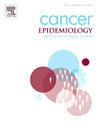膳食脂肪类型(MUFA, PUFA, SFA)和来源(动物,植物)与结直肠癌风险的关系:前瞻性队列研究的综合系统评价和剂量反应荟萃分析
IF 2.4
3区 医学
Q3 ONCOLOGY
引用次数: 0
摘要
背景和目的虽然膳食脂肪摄入长期以来被认为是结直肠癌的危险因素,但前瞻性队列研究的证据仍然不一致。此外,先前的荟萃分析研究了饮食脂肪摄入量与结直肠癌风险之间的联系,并没有探索剂量-反应关系。因此,本研究进行了系统回顾和荟萃分析,以评估特定类型(MUFA、PUFA和SFA)摄入和膳食脂肪来源(动物、植物)与结直肠癌风险之间的剂量-反应关系。方法对相关在线数据库进行综合文献检索,筛选符合条件的研究,截至2023年5月,共纳入21项前瞻性队列研究,总样本量为2311,737名受试者。随访时间从7年到19.4年不等,在此期间记录了21125例结直肠癌、结肠癌或直肠癌病例。结果比较总脂肪的极端摄入水平显示,结直肠癌的总相对危险度(RR)为1.05(95 % CI: 0.96-1.15),结肠癌的总相对危险度为0.99(95 % CI: 0.87-1.11),直肠癌的总相对危险度为1.09(0.95 % CI: 0.93-1.13),表明无显著相关性。摄入动物或植物脂肪与患癌症的风险无关。虽然对MUFA或PUFA也没有观察到显著的发现,但最高和最低的比较显示,高SFA摄入量与结肠直肠癌(0.91(95 % CI: 0.85-0.99)和结肠癌(0.86(95 % CI: 0.75-0.98)的风险降低相关。然而,在非线性剂量-反应分析中,在一定范围内(<;40 g/天)出现了负相关。结论饮食中SFA摄入量低于40 g/d可能对结直肠癌有保护作用。需要进一步的研究来证实我们的发现。本文章由计算机程序翻译,如有差异,请以英文原文为准。
Associations of dietary fat types (MUFA, PUFA, SFA) and sources (animal, plant) with colorectal cancer risk: A comprehensive systematic review and dose-response meta-analysis of prospective cohort studies
Background and objectives
While dietary fat intake has long been implicated as a risk factor for colorectal cancer, evidence from prospective cohort studies remains inconsistent. Moreover, previous meta-analyses examining the link between dietary fat intake and risk of colorectal cancer have not explored the dose-response relationships. Therefore, the current systematic review and meta-analysis was conducted to assess the dose-response associations of intakes of specific types (MUFA, PUFA and SFA) and sources (animal, plant) of dietary fat with the risk of colorectal, colon or rectal cancer.
Methods
A comprehensive literature search of relevant online databases was performed to detect eligible studies until May 2023, identifying 21 prospective cohort studies with a total sample size of 2311,737 participants. The follow-up periods ranged from 7 to 19.4 years, during which 21,125 cases of colorectal, colon or rectal cancer were recorded.
Results
Comparing extreme intake levels of total fat revealed the summary relative risk (RR) of 1.05 (95 % CI: 0.96–1.15) for colorectal cancer, 0.99 (95 % CI: 0.87–1.11) for colon cancer, and 1.09 (0.95 % CI: 0.93–1.13) for rectal cancer, indicating no significant association. Neither animal nor plant fat intake was associated with the risk of cancers. While no significant findings were also observed for MUFA or PUFA, the highest versus lowest comparison showed that a high intake of SFA was associated with a reduced risk of both colorectal 0.91 (95 % CI: 0.85–0.99) and colon cancer 0.86 (95 % CI: 0.75–0.98). However, in the non-linear dose-response analysis, the inverse association was seen within a certain range (<40 g/day).
Conclusions
These findings suggest that dietary SFA intake, less than 40 g/day, may have a protective effect against colorectal cancer. Further studies are needed to confirm our findings.
求助全文
通过发布文献求助,成功后即可免费获取论文全文。
去求助
来源期刊

Cancer Epidemiology
医学-肿瘤学
CiteScore
4.50
自引率
3.80%
发文量
200
审稿时长
39 days
期刊介绍:
Cancer Epidemiology is dedicated to increasing understanding about cancer causes, prevention and control. The scope of the journal embraces all aspects of cancer epidemiology including:
• Descriptive epidemiology
• Studies of risk factors for disease initiation, development and prognosis
• Screening and early detection
• Prevention and control
• Methodological issues
The journal publishes original research articles (full length and short reports), systematic reviews and meta-analyses, editorials, commentaries and letters to the editor commenting on previously published research.
 求助内容:
求助内容: 应助结果提醒方式:
应助结果提醒方式:


